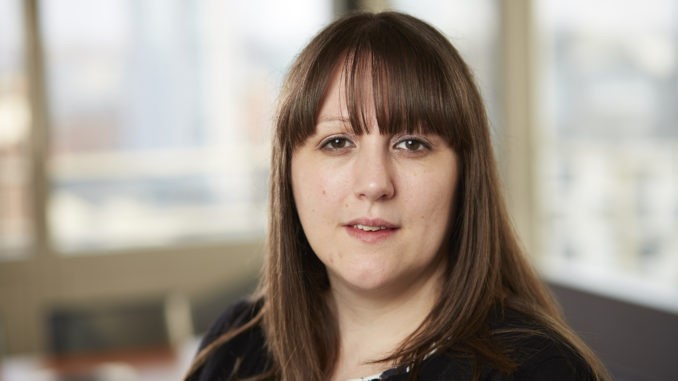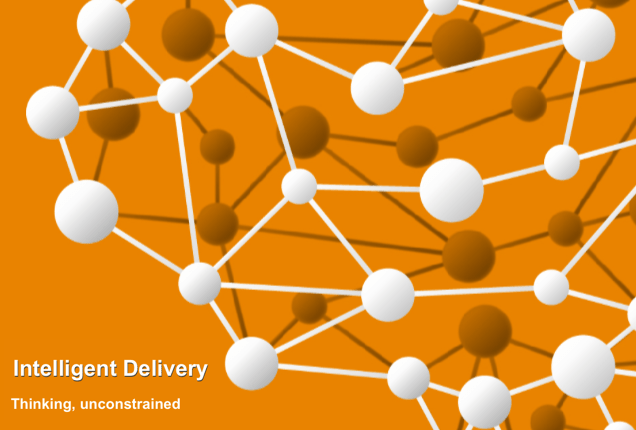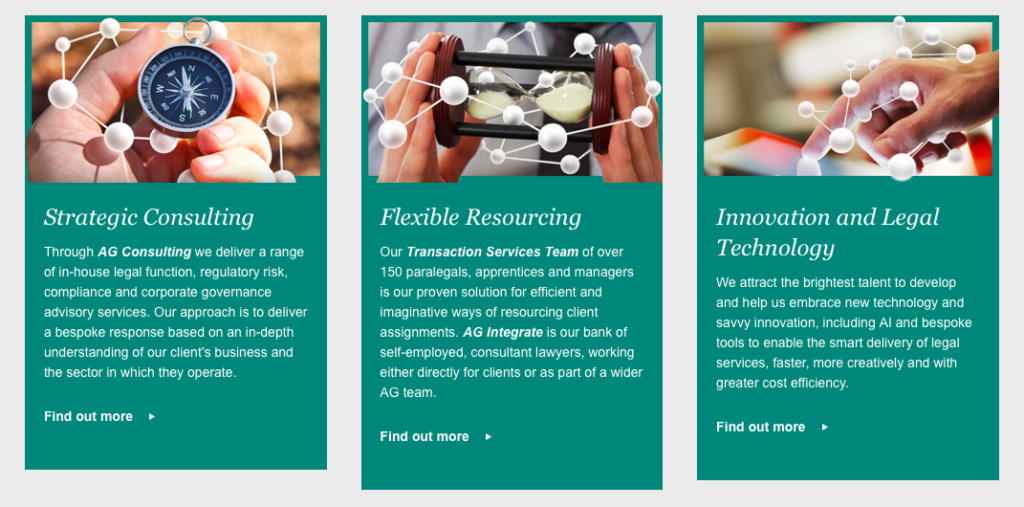
Artificial Lawyer recently caught up with Kerry Westland (pictured above), the new Head of Innovation and Legal Technology at leading international law firm, Addleshaw Goddard (AG), which is making use of AI technology, including Kira Systems. We discussed her new role and how the firm continues to evolve its approach to the use of legal tech.
First, Westland points out that AG’s move into more advanced types of legal tech such as AI doc review, is all part of a long term evolution that goes back to 2010. In that year the firm created its Transaction Services Team (TST), where Westland was one of the original group.
The TST had a focus on providing greater efficiency to clients and in turn this led to greater use of technology. The team now has 150 people, across the firm’s UK offices.
Westland adds that it became clear that they also needed to develop a more ‘strategic approach’ to the use of technology. One might say they needed to ‘bake in’ advanced legal tech all the way through what they did.

‘ID is not a separate thing. It’s for all our clients, it’s how we do business in AG,’ she says, underlining the fact that law firms like AG have moved on significantly from a business model where each piece of work was treated as a one-off and rarely project-managed, or analysed to see where efficiencies in legal production could be found for the client.
Westland explains that this is a natural response to the way client expectations are changing. By way of example, she mentions how RFPs from clients ask firms to outline how they are using AI, how they will handle project management and how will clients benefit from better service delivery design.
Of course, talking to clients about AI is not always guaranteed to generate the same conversation. Westland notes that some clients are very impressed with what AI doc review can do once its trained, others think it’s not enough. The latter is perhaps the result of unreal expectations developed from too many Hollywood films. But, this is something law firms have to grapple with.
Westland also stresses that the pricing aspect of the use of technology is just one part that needs to be considered. There is speed, accuracy and other issues such as improving the morale of staff by replacing some more of the routine work.

Yet, AG, as with other firms, is also trying to come to terms with the legal training issue of what happens when young lawyers don’t do dull, but educationally useful work? How do they learn the basics of commercial law?
‘Due diligence work does help junior lawyers. If we take it out how does a person become an expert [in this area]?’ she notes.
As yet, the exact answer is not clear.
But, more broadly, how does Westland see things changing because of this New Wave of legal technology? Do lawyers need to code? No, she says, although she has learnt some, including a bit of HTML.
Yet, the firm may have to hire more programmers and tech developers in the future, because of the growing importance of legal tech.
Such moves are not always easy to accept in a large law firm, she notes. ‘I think that naturally we are all slightly resistant to change,’ she says.
She gives the example of how just moving a TV programme from one channel to another can seem implicitly wrong, even though we logically know the change of channel makes no significant difference to the actual show.
And this tendency to get stuck with what we know is a particular issue for lawyers who have grown up in a time-based culture.
Fundamentally, she says, it’s all about giving people the tools to be innovative and to encourage new ideas. While in terms of her role and her team’s role as the ‘innovation’ focus of the firm, it’s to be ‘the travel adaptor’, she says.
That is to say, Westland is there to act as a bridge between law and technology, to provide a hybrid capability within the firm.
And, in terms of her new role, the reality is that the convergence of law and advanced technology is really only just beginning. No doubt there will many great changes to come, especially as AI systems are eventually used more broadly across the legal sector.
1 Trackback / Pingback
Comments are closed.